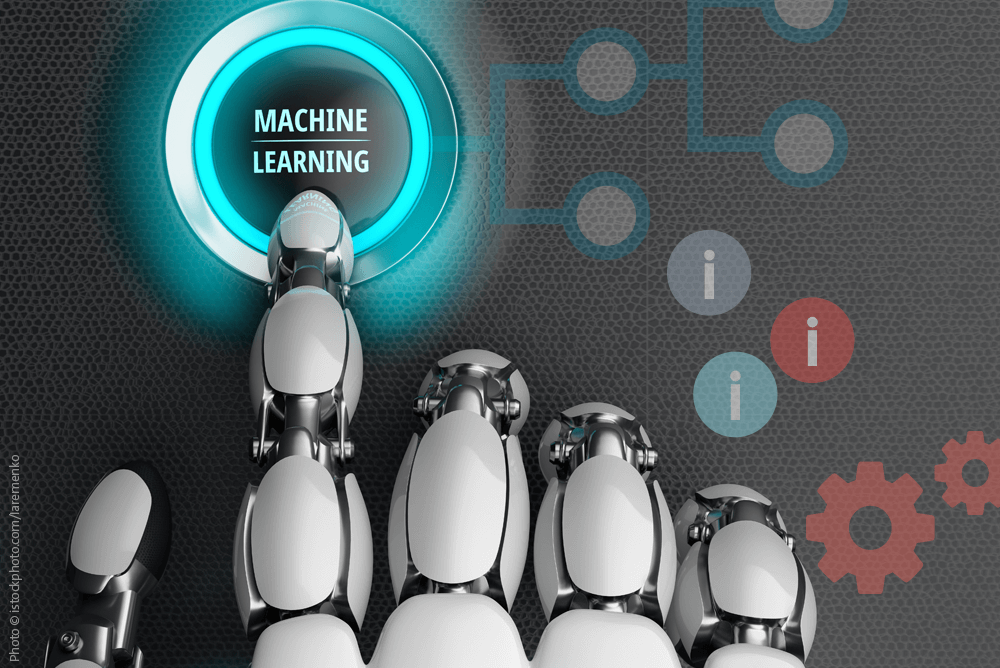Enterprises of all industries and sizes are facing fundamental challenges caused by the progressive digitalization throughout societies worldwide. After decades of inflexible work processes based on rigid rules and top-down structures, slowly but surely the public has dominated the market. Given their demands for individual quotations and immediate response, many business models have fallen into disuse. The future holds the solution in artificial intelligence (AI).
Prompt action, personalized choices
Enterprises have rapidly shifted towards smart process automation, as trading in real-time can only be realized with automated operations. Individual supplies require an exact analysis of data quantities. Software based on artificial intelligence goes beyond the scope of that. Software based on AI repeatedly breaks down unstructured data, providing smart solutions and delivering process strategies.
Artificial intelligence: an appreciated attack on privacy
Artificial intelligence has found its way into our private lives years ago, from voice-controlled devices and text messages to autonomous domestic appliances. Thanks to the quick downloads of GPS systems on smartphones or tablets, traffic congestion is being avoided and final destinations are being reached without detour. We make daily use of services that are based on intelligent software. Their ability to control standardized workflows spares us trouble as we gain more time for more productive work.
Why do businesses show restraint?
Robotic process automation, cognitive software and AI solutions are being implemented slowly in corporate environments. Despite all the success, a large number of enterprises seem hesitant in investing in AI software.
Given the speed of innovative technologies and the many digital solutions promising to ease workflows and optimize structures, the people responsible choose to avoid the disorientation risk and allow reason to prevail. While this is somewhat understandable, there is a missing link: one has to chop one’s way through the undergrowth not to be caught up in the whirlwind of digital and technical changes. Facing the challenges head-on is the only way of optimizing capabilities.
Saving time and trouble: automated workflows focus on essentials
Whether it’s incoming mail, customer service or simply logistics, AI solutions contribute to process optimization by automating repetitive information quickly, accurately and at low cost. By capturing, classifying and distributing data, these solutions separate routine operations from individual cases. Thanks to learning controls, skilled replies to incoming mails are generated and sent automatically. What are the advantages? Human resources can be utilized more efficiently and the client’s demand for receiving an immediate response can be matched.
Comprehensive knowledge
Investment in knowledge management plays out the same way. Artificial intelligence-based software is able to analyze all the relevant content for particular purposes.
Differences in wording are recognized and put into context should the knowledge be explicit (e.g, recorded information) or implicit (e.g, acquired capabilities). In this way, business knowledge is being kept in a structured manner with no risk of getting lost in the vast amounts of data.
Improved service thanks to virtual assistants
From customer hotlines with waiting loops and appointments arranged months in advance to vague answers to FAQs, services from private businesses or government agencies require patience. As a result, the relationship between consumers and enterprises, public and civil offices suffers damage. In daily service procedures, automated smart and self-learning software is the answer to the missing links. Thanks to digital services, inconvenient government operations have become partly obsolete already. Virtual assistants understand the relationship between the parties involved and take over immediately. Nowadays, there are numerous options available to integrate artificial intelligence into any enterprise’s daily workflows.
And make no mistake, this is only the first step towards a growing future of smart interactions between humans and machines. Despite some critical voices, robotic process automation (RPA) and cognitive software are far more than simply substitutes for human activities. Not only will several actions be quicker, but the processes will also be handled by situation and with far more flexibility.



